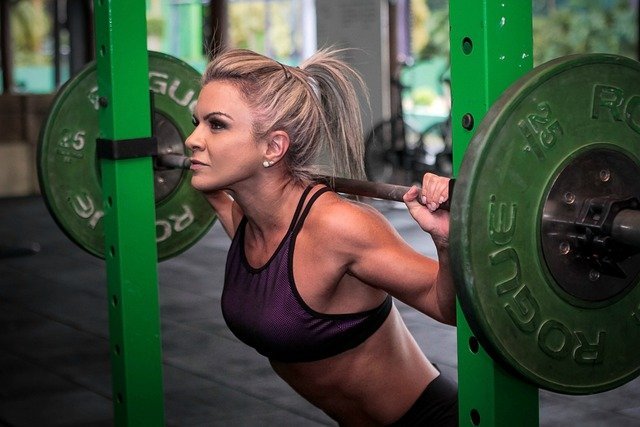
Why Do I Feel Weaker Instead Of Stronger Every Time I Work Out? Revive Your Gains
It’s a dilemma that plagues anyone who has ever tried to get fit: you work out, expecting to feel stronger and more energized, but instead, you feel weaker and more exhausted. What’s going on?
Why does exercise seem to have the opposite effect on our bodies than we want it to?
As it turns out, there are a few key reasons why this might be happening and today we’re going to explore them all. Keep reading to learn more!
Why do I feel weaker instead of stronger every time I work out?
Whether it be an injury, lack of motivation or just plain old over-enthusiastic training sessions with little focus on recovery and rest days…you need to take a step back for your body’s natural process to work. You’re maybe going too hard which could lead to burnout as well as injury if proper training guidelines aren’t followed, such as changing your routine and order of exercises. There are ways around this problem by changing certain aspects such as dieting strategies (including supplementation), hydration habits etc so that all parts get rejuvenated at least temporarily before getting into another intense routine again…or even better yet reassessing what type/intensity level would best suit YOU personally. Following progressive overload is key to gradually increasing weight each week so that your muscles have time to adapt and become stronger, rather than trying to lift too much at once without any real progress.
Routine order needs changing
One thing you need to consider is the order in which you are performing your exercises. If you are doing exercises that require a lot of energy first, then you are more likely to feel weaker by the end of your workout.
For example, if you start with a heavy lifting session, followed by some bicep curls, you are going to be pretty exhausted by the time you finish your workout.
Instead, try starting with some lighter exercises, such as a brisk walk or some light cardio, followed by your lifting sessions. This will help you gradually build up your energy levels and give you the strength you need to power through your workout.
Also, swap the order in which you do your workout routine every few weeks. This will help to keep your body guessing and prevent you from hitting a plateau.
Not getting enough sleep
Another common reason why you might be feeling weaker instead of stronger is that you are not getting enough sleep. When we sleep, our bodies go into repair mode and this is when our muscles recover from our workouts.
If you are not getting enough sleep, your muscles will not have the time they need to recover and this can lead to fatigue and weakness.
Aim for 7-8 hours of sleep per night and try to go to bed and wake up at the same time each day. This will help to regulate your body’s natural sleep cycle and allow you to get the most out of your slumber.
You should also avoid working out right before bed as this can lead to insomnia and make it harder to fall asleep.

Overtraining
If you are working out too often, or for too long, this can also lead to feelings of weakness and fatigue. When we overtrain, our bodies do not have enough time to recover and this can lead to burnout.
If you are feeling exhausted, or like you are not making any progress, it might be time to take a step back and reassess your workout routine.
Cut back on the number of days you are working out, or the length of your workouts, and focus on quality over quantity. This will give your body the rest it needs to recover and come back stronger than ever.
We all want to make the most of the time we have to workout, but sometimes less is more and this is especially true when it comes to recovery.
Make sure you are taking at least one or two rest days per week, and listen to your body if it is telling you to take a break.
How is your diet?
You are what you eat, and this is especially true when it comes to working out. If you are not eating enough or the right types of foods, this can lead to feelings of weakness and fatigue.
Make sure you are eating a balanced diet that includes plenty of protein, carbohydrates, and healthy fats. This will help to fuel your workouts and give you the energy you need to power through.
You should also be sure to stay hydrated before, during, and after your workouts. Dehydration can lead to fatigue and muscle cramps, so it is important to drink plenty of fluids.
Aim for at least 8 glasses of water per day, and even more if you are sweating a lot during your workouts. You can also drink sports drinks or eat foods that are high in water content, such as fruits and vegetables.
If you are still feeling weak after following these tips, it might be time to see a doctor or nutritionist to see if there is an underlying health issue. With the help of a professional, you can get to the bottom of your fatigue and find a solution that works for you.
Related: Why Am I Weaker Than My Last Workout? All You Need To Know To Get Back On Track Fast
Your recovery routine needs work
Recovery is just as important as the workout itself, yet so many people overlook this crucial part of their fitness journey.
If you are not taking the time to properly recover, this can lead to feelings of weakness and fatigue. Make sure you are stretching, foam rolling, and getting massages regularly.
Take at least one or two rest days per week, and listen to your body if it is telling you to take a break.
Incorporating these recovery strategies into your routine will help to prevent injuries, reduce fatigue, and improve your overall performance.
You should also be sure to sleep enough and focus on eating a healthy diet. By following these tips, you can help your body to recover properly and come back stronger than ever.
Stress
We all know that feeling when we are so stressed out that we can’t even think straight. This can lead to a whole host of problems, including fatigue and weakness.
When we are stressed, our bodies release the hormone cortisol. This hormone breaks down muscle tissue and increases inflammation, which can lead to feelings of fatigue and weakness.
If you are feeling stressed, it is important to find ways to relax and manage your stress levels. This can include things like yoga, meditation, and deep breathing exercises.
You should also avoid working out close to bedtime since this might induce sleeplessness and make it more difficult to fall asleep.
By managing your stress levels and getting enough sleep, you can help to reduce fatigue and improve your overall health.
You’re not giving your body time to adapt
If you’re constantly challenging yourself with new workouts or upping the intensity of your existing routine, your body won’t have time to adapt and recover.
This can lead to feelings of fatigue, weakness, and even injuries. It’s important to give your body time to adjust to new exercises or intensity levels so that you can avoid these issues.
Ease into new workouts gradually, and make sure you are taking plenty of rest days. This will help your body to recover properly and prevent injuries.
Rest and recovery are crucial for strength gains, so make sure you are giving your body the time it needs to adapt and grow stronger.
You’re going too hard for too long
If you are working out for long periods or going too hard, this can lead to feelings of fatigue and weakness.
It’s important to find a balance between intensity and volume so that you can avoid these issues. Try mixing up your workouts with days of lower intensity and shorter duration.
By finding the right balance of intensity and volume, you can help to reduce fatigue and improve your overall performance.
Our bodies can’t operate at a high-intensity level all the time, we need to let them recover. Redlining your body like a car engine will lead to a breakdown. Find that happy medium in your workouts and don’t overdo it.
Exercises such as HIIT are great for fat burning and improving cardiovascular health, but if done too often can lead to feelings of fatigue and weakness.
It’s important to find a balance between intense workouts and lower-intensity activities so that you can avoid these issues. Try mixing up your routine with days of lower intensity and shorter duration.
By finding the right balance, you can help to reduce fatigue and improve your overall performance.
Have you lost motivation?
If you have lost motivation, it can be hard to find the energy to work out. This can lead to feelings of fatigue and weakness.
It’s important to find ways to stay motivated so that you can keep up with your workout routine. Try setting goals, joining a class or gym, or working out with a friend.
By staying motivated, you can help to reduce fatigue and improve your overall health.
Changing the way you train regularly, can help keep training fresh for you and help to prevent boredom. This will also help to reduce the risk of overtraining and injuries.
Set yourself achievable goals and celebrate your achievements along the way. This will help to keep you motivated and on track towards your fitness goals.

You need to reassess your workout plan
If you are not seeing results from your current workout routine, it might be time to reassess your plan.
This can lead to feelings of frustration and demotivation, which can eventually lead to fatigue and weakness.
Remember, it takes time to see results from exercise. If you are not seeing the results you want, don’t be discouraged.
Try changing up your routine, adding new exercises, or increasing the intensity of your workouts. By making small changes to your workout plan, you can help to reduce fatigue and improve your overall health.
It’s important to make sure that your workout routine is effective and helps you to reach your goals. Try speaking to a personal trainer or fitness coach to get advice on how to improve your workout routine.
By reassessing your workout plan, you can help to reduce fatigue and improve your overall health. Having an ever-updated and effective workout routine is essential to help you meet your fitness goals.
Related: Do You Squeeze Your Muscles Whenever You Exercise? 12 Crucial Factors To Maximise Gains
Change how you do exercises
There are several methods of lifting weights, and they can help keep your body guessing when it comes to training. By mixing up your routine, you can avoid plateauing and continue seeing results.
Blood Flow Restriction Training – By constricting blood flow to the muscles, you can help reduce swelling and inflammation from an injury. However, this process is often painful.
Isometrics – Holding a muscle stationary for an extended period is an excellent way to build strength.
Crossfit – This is a type of training that includes many different exercises at a high intensity. It’s excellent for improving fitness, but it can be quite taxing on the body.
High-Intensity Interval Training – The goal of this type of training is to alternate periods of high and low intensity. It’s excellent for increasing physical fitness.
Tabata – This is a form of high-intensity interval training that is quite intensive. Tabata training breaks down a workout into distinct intervals, typically 20 seconds of push-it-to-the-limit activity followed by 10 seconds of rest.
Drop Sets –This is a form of weightlifting in which you lower the weight after each set. It’s an excellent method to increase strength and muscle mass.
Super Sets – Here you do two or more sets of an exercise back-to-back with no rest in between. It’s a great way to build strength and muscle.
Rest-Pause Sets – If you’re looking for a way to build strength and muscle, rest-pause training may be for you. This type of weightlifting involves taking short breaks between reps, which can taxing on the body but ultimately produce results.
Forced Reps – Weightlifting where you have someone else to help with the last few reps of an exercise is a great way to build strength. It’s also beneficial for muscle growth.
Negative Reps – A type of weightlifting where you lower the weight slower than you lift it. It’s a great way to build strength and muscle.
Pyramid Sets – This is a form of resistance exercise in which you start with a lesser weight and then gradually increase the amount as you go. It’s an excellent way to develop strength and muscle.
As you can see, there are several methods to lift weights that will all aid in keeping your body guessing and aiding in gains.
Related: What Is The Most Painful Gym Exercise? (All The Answers Here)
Are you using progressive overload?
Progressive overload is a technique where you gradually increase the amount of weight, reps, or sets in your workout routine. This helps to ensure that your body continues to adapt and improve.
If you’re not using progressive overload, you may find that your body quickly adapts to your workout routine and you stop seeing results.
To avoid this, make sure that you’re gradually increasing the intensity of your workouts. This can be done by adding more weight, reps, or sets to your routine.
You should also make sure that you’re giving your body enough time to recover between workouts. If you don’t allow your body to recover, you’ll quickly become overtrained and start seeing negative results.
Remember, to track your progress so you can ensure that you’re using progressive overload in your workout routine.
Poor form
If your form is poor, you’re not only putting yourself at risk of injury but you’re also not getting the most out of your workout.
Make sure that you’re using proper form when lifting weights. This means that you should be using a full range of motion and not cheating the reps.
You should also make sure that you’re using the right weight. If the weight is too light, you’re not going to see results. If the weight is too heavy, you’re at risk of injury.
Make sure that you have a spotter when lifting heavy weights. This will help to ensure that you don’t get injured and can also help you to focus on your form.
Finally, make sure that you’re warm before you start your workout. Warming up helps to prevent injury and also gets your body ready for the workout.
If you follow these tips, you’ll be sure to see better results from your workout routine.
Consult a doctor for deficiencies
It’s worth mentioning that you might be working out and not seeing results because you have a deficiency that is hindering your progress.
There are a variety of tests that your doctor can perform to check for deficiencies. These tests can help to identify any problems that you might have and can also help to find the cause of any fatigue or weakness that you’re experiencing.
If you think that you might have a deficiency, make an appointment with your doctor to get tested. Once you know what the problem is, you can take steps to correct it and start seeing better results from your workout routine.
Final thoughts…
If you’re feeling weaker instead of stronger after your workouts, it’s important to reassess your routine. There are several methods of lifting weights that can help keep your body guessing and prevent plateauing.
You should also make sure that you’re using progressive overload in your workout routine. Finally, give your body enough time to recover between workouts and make sure that you’re warm before starting your workout.
If you follow these tips, you’ll be sure to see better results from your workout routine.
Have you experienced this problem and how did you get back on track? Let us know in the comments below.


